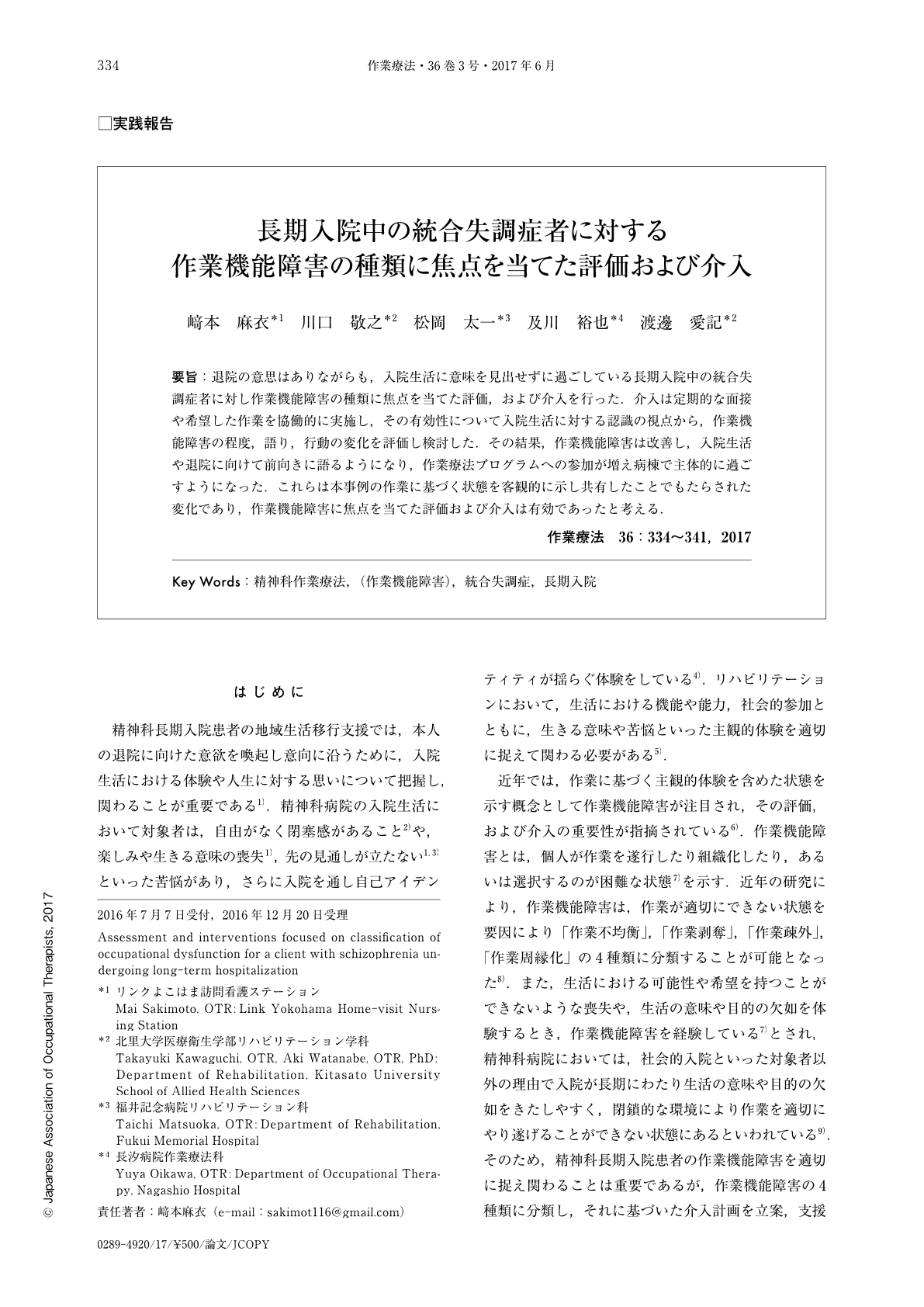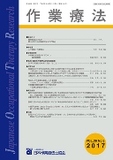Japanese
English
- 販売していません
- Abstract 文献概要
- 1ページ目 Look Inside
- 参考文献 Reference
- サイト内被引用 Cited by
要旨:退院の意思はありながらも,入院生活に意味を見出せずに過ごしている長期入院中の統合失調症者に対し作業機能障害の種類に焦点を当てた評価,および介入を行った.介入は定期的な面接や希望した作業を協働的に実施し,その有効性について入院生活に対する認識の視点から,作業機能障害の程度,語り,行動の変化を評価し検討した.その結果,作業機能障害は改善し,入院生活や退院に向けて前向きに語るようになり,作業療法プログラムへの参加が増え病棟で主体的に過ごすようになった.これらは本事例の作業に基づく状態を客観的に示し共有したことでもたらされた変化であり,作業機能障害に焦点を当てた評価および介入は有効であったと考える.
We carried out an assessment and interventions focused on the classification of occupational dysfunction in a client with schizophrenia who felt his long-term hospitalization in a psychiatric hospital had no meaning. Interventions included collaborative occupational therapy programs and regular interviews. The effectiveness of the interventions was determined by assessing changes in the degree of occupational dysfunction, narrative, and behavior in his recognition of hospitalization. As a result, his occupational dysfunction improved, and his narrative about hospitalization and hospital discharge became positive. In addition, his participation in the occupational therapy programs increased, and his hospitalization came to have meaning for him. We think that these changes were caused by the showing and sharing of his state based on occupational dysfunction during hospitalization. Therefore, the assessment and interventions focused on classification of occupational dysfunction were effective in a client with schizophrenia.

Copyright © 2017, Japanese Association of Occupational Therapists. All rights reserved.


